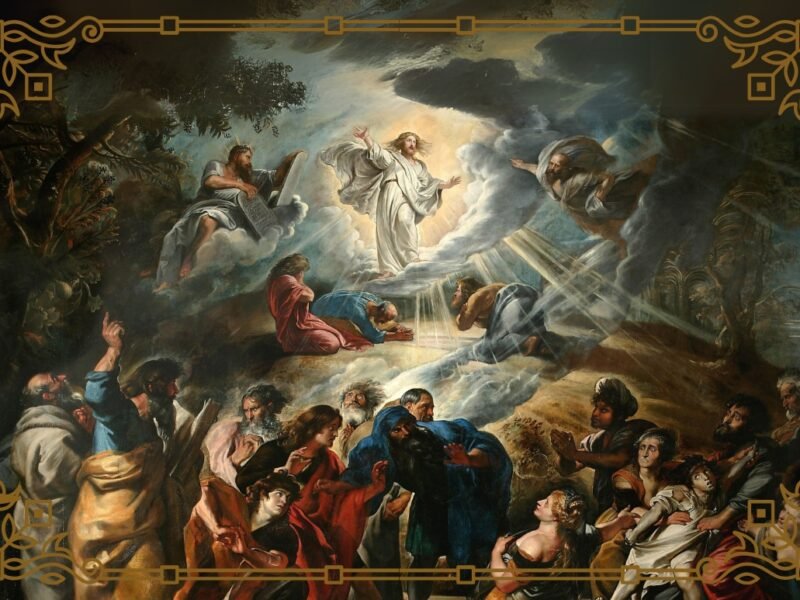This article is part of the series “Secular Stories.” Click below to read other installments:
- SECULAR STORIES: AN INTRODUCTION
- SECULAR STORIES PART 1: MACINTYRE’S ‘SUGGESTION’ AND EMOTIVISM
- SECULAR STORIES PART 2: THE FAILED ENLIGHTENMENT PROJECT
- SECULAR STORIES PART 3: THE PROBLEM WITH SOCIAL SCIENCES
At the beginning of this series, I proposed that the first step toward understanding this “secular” age would be exploring just how we got here. The first major resource I’ve recommended for that task is the book After Virtue by Alasdair MacIntyre.
Which Way: ARISTOTLE OR NIETZSCHE?
Alasdair MacIntyre wrote After Virtue to convince his readers that what they commonly believe to be honest moral discourse is only a hollow replica of the real thing. He explains how the “real thing” had been abandoned a long time ago and most people can’t even realize the difference. Moral discourse had existed in its true form, suggests MacIntyre, when people still believed and taught a handful of ideas that he associates with Aristotle. Chief among Aristotle’s was his account of the virtues, according to MacIntyre. The virtues being understood as those habits of character which are necessary for a human to achieve his telos or end-goal in life.
Why Did We Abandon Virtue?
But why did we ever give up these important moral insights in the first place? MacIntyre explains the conditions which made sense of their abandonment, especially noting those key figures in the “Enlightenment project of justifying morality” who sought to explain human morals while simultaneously rejecting a traditional account of human persons. Especially fatal to the project was the rejection of teleology, which had been so important to ancient thinkers like Aristotle, as well as the Christian moral tradition through the middle ages and beyond. Those who belonged to this failed enlightenment “project” attempted to give accounts that were no less objective in scope than Aristotle’s (and Aquinas’s) for deviating from the traditional teleological. They often attempted to achieve strikingly Christian or traditional seeming moral standards in spite of their biased failure to acknowledge a specific telos that is proper to humanity alone.
The Rise of Emotivism
The result of these competing moral theories, which are at once—equally exclusive of one another, and objective in their aims—is that the default moral position becomes “emotivism.” Emotivism being a term that MacIntyre borrows from the moral theory that holds all moral claims to be mere expressions of personal preference. He uses it to describe the de facto morality of our age, which, due to the confusion caused by the multiplication of these incompatible moral theories, has been reduced to a mere assertion of one’s personal belief and will. Try as we might, but all of our appeals to objective standards are merely a mask for our emotivist use of power and coercion to get our own way.
The Social Sciences at Work
MacIntyre implicates the social sciences as among the chief culprits in the way emotivism operates within modern bureaucratic systems. The social sciences were given a prominent role in society due to their claims of predictive power, but MacIntyre denies these claims. This would suggest that the authority currently enjoyed in the high places of society due to a person’s “expertise” in the social sciences, is illegitimate.
The Nietzschean Will to Power
Rather than promote an environment where knowledge of truth is paramount, it is knowledge of managerial expertise which is valued. According to MacIntyre’s account, the purposes of a manager, therapist, or other “actors” in modern bureaucracies can never be called into question. All there is to determine is how adept the individual is within their given system, or how good they are at encouraging underlings in the performance of their given role within the system.
In an environment such as this, when moral conflicts arise, objective standards of morality are appealed to by the various actors, acting variously in their own interest (or that of their manager or institution), but this is ultimately an emotivist game of posturing while attempting to assert one’s will to power in the Nietzschean sense. MacIntyre suggests that Nietzsche saw the “will” lurking behind all of the emotivist posturings in modern societies for what it was, and so sees him as a logical leader if we continue on our present course.
Two Honest Choices Are Available
MacIntyre thinks the present state of things necessarily forces us to choose; between Nietzsche, who also rejected the existence of a human telos but also saw through the Weberian illusions of emotivism that we have constructed, or else recover a belief in man’s telos and all of the Aristotelian commitments which used to place the rules of morality within their proper context.
MacIntyre summarizes the two major thrusts of his argument which lead us to the present consideration thusly:
The first was that the language-and therefore also to some large degree the practice-of morality today is in a state of grave disorder. That disorder arises from the prevailing cultural power of an idiom in which ill assorted conceptual fragments from various parts of our past are deployed together in private and public debates which are notable chiefly for the unsettleable character of the controversies thus carried on and the apparent arbitrariness of each of the contending parties.
The second was that ever since belief in Aristotelian teleology was discredited moral philosophers have attempted to provide some alternative rational secular account of the nature and status of morality, but that all these attempts, various and variously impressive as they have been, have in fact failed, a failure perceived most clearly by Nietzsche.[1]
It’s good to remember that MacIntyre is writing here as an agnostic with a somewhat “secular” vision of ethics in mind, when he suggests the final decision draws down to either Nietzsche or Aristotle. As Christians, we should note that within the broad umbrella of “the tradition of Aristotle” MacIntyre has included several legitimate developments (and improvements by MacIntyre’s own account) that come from Christianity. Further, among the remnants of that Aristotelian understanding, which MacIntyre claims the present attempts to employ for either Kantian or Utilitarian ends, are several specifically Christian contributions.
A Return to Virtue
So, Aristotle represents, for the (then) agnostic MacIntyre, the whole tradition which embraced the virtues and declared that man has a telos, and if this view can’t be reasonably defended we must become Nietzscheans. The whole of After Virtue can be seen as MacIntyre’s argument in defense of an Aristotelian account of the virtues, therefore, because it’s true the tradition of Aristotle must be restored the argument goes. Some Christian readers will likely find large parts of MacIntyre’s argument unnecessary or academic, and that’s okay. His insights into the consequences of the rejection of Aristotelian (and Christian) notions of virtue and purpose in human life are still useful for our larger project of understanding what secularity is, and how it comes about.
The ethical consequences of the decline in faith in the post-Christendom West aren’t all there is to the story, but they are an essential part of it. In After Virtue Alasdair MacIntyre has provided us a comprehensive way to understand our present moral chaos by tracing its development from the past. Additionally, his insights into the way our current mode of pseudo-morality operates in modern institutions are valuable for Christians seeking to understand how corruption can take place in churches, seminaries, private institutions, and the civic sphere as well.
What’s Next?
This concludes our exploration of After Virtue for insights into the nature of “the secular.” Next, we’ll begin an examination of John Milbank’s Theology and Social Theory to better understand secularity from a more explicitly Christian and theological perspective.
- MacIntyre, After Virtue, 256. ↑







'Secular Stories Part 4: Aristotle or Nietzsche?' has 1 comment
January 17, 2024 @ 12:04 pm Kristi Swanson
Thank you for this series of articles. It has helped me be able to understand the frustrations I have as I try to engage in moral and ethical debates in the society at large and as I try to wade through the chaos as I educate my children. I appreciate you distilling this scholarly discussion for someone like me.